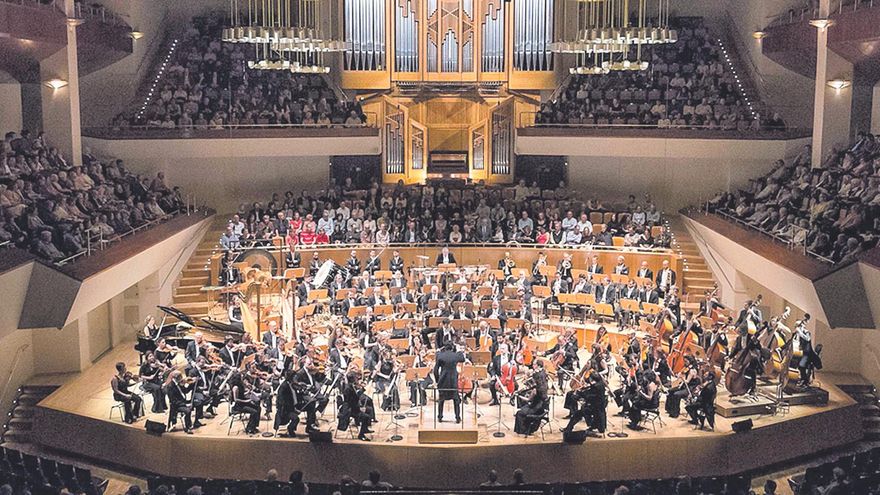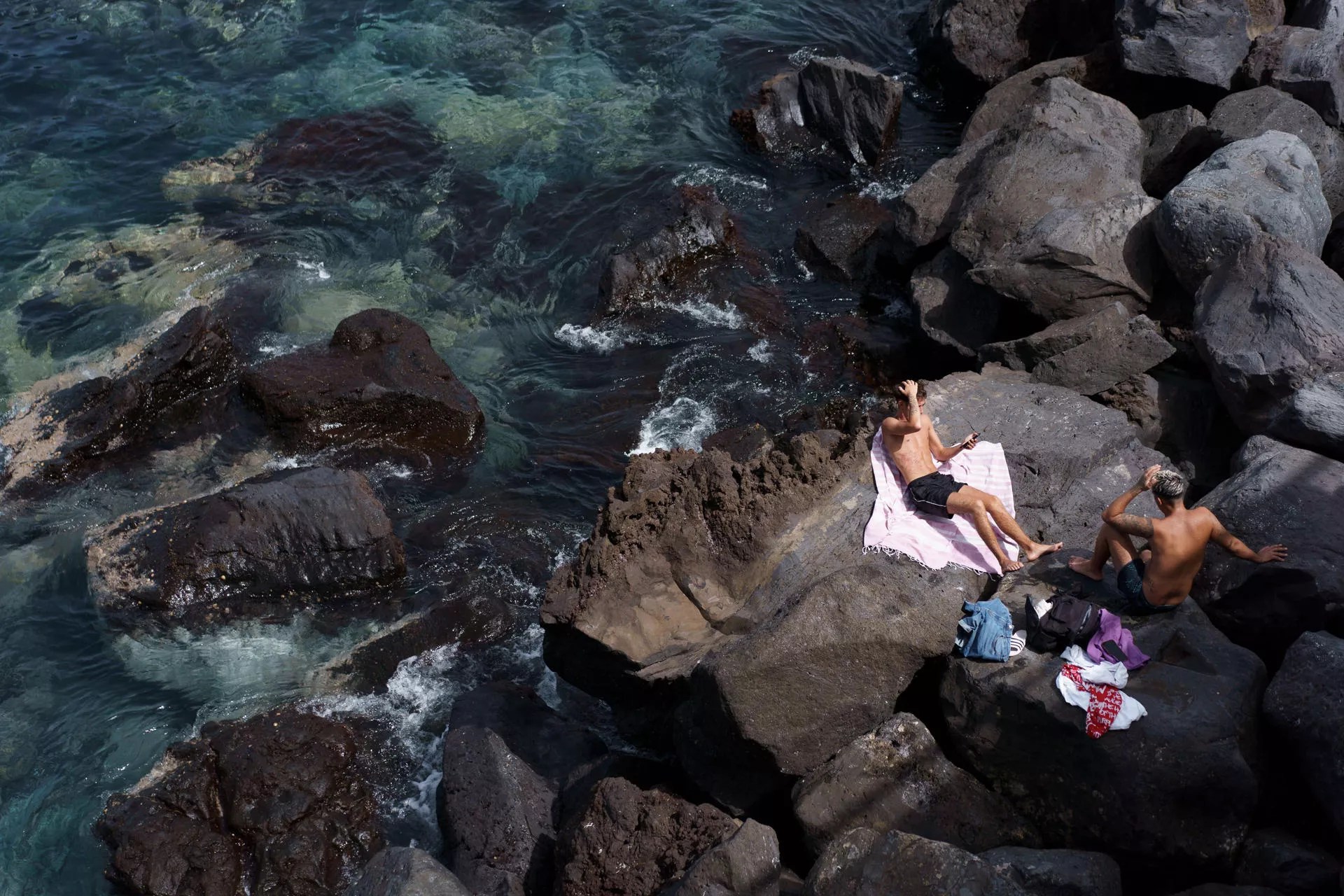
This Wednesday, January 10, the programming for the 40th anniversary of what is the main cultural event of the Archipelago begins: the International Music Festival of Canary Islands. The Auditorium of Tenerife will host the first concert of an overwhelming agenda both for the quality of its proposals and the quantity of concerts. Between this Wednesday and the last of the scheduled concerts, which will take place on February 9 at the Training and Congress Palace of Fuerteventura with the baroque ensemble il pomo di oro as protagonists, exactly 31 days will pass. Total, There are 67 recitals planned in venues across the eight islands. From these we only have to subtract the three already offered by the Young Orchestra of the Canary Islands as a prelude to the festival and which took place on recent Christmas dates.
Pietari Inkinen will be in charge of conducting the opening concert with the Bergen Philharmonic Orchestra as the protagonist and The Morning of Peer Gynt, by Grieg, on the program. It will be in the Symphony Hall starting at 8:00 p.m. The evening will also include another of Grieg’s pieces, his Piano Concerto, which will feature child prodigal Alexandra Dovgan, just 16 years old, as soloist. The same concert, which will close with Sibelius’s Symphony number 2, will be repeated the next day at the Alfredo Kraus Auditorium in The Gran Canarian palms.
Ten orchestral formations, diverse settings that include the La Graciosa island and a program with works ranging from the 16th century to the 21st century are just some of the attractions added to this important proposal that is not without complications.
In total, the organization must coordinate the transfers of 870 musicians. There will be more than 3,000 plane tickets and several dozen concerts that have to be set up and taken down from one day to the next on different islands of the Archipelago.
You will only have to wait a few hours to attend the second event in the capital’s auditoriums. It will be on January 12 and 16 with one of the international piano stars: Evgeny Kissin. The Russian-British-Israeli will perform for the first time at the Canary Islands Music Festival with an impressive program that brings together Beethoven, Brahms, Chopin and Prokofiev.
Another characteristic that distinguishes the only event of this type that can be held on these dates throughout Europe is the price of its tickets. Kissin, for example, and taking into account the discounts, can be seen for just ten euros. As recently highlighted by the director of the competition, Jorge Perdigón, he is an exceptional musician who barely offers 25 concerts a year and for whom tickets of around 400 euros would be charged anywhere in the world.
Continuing with the program, during the third week of January it will be the turn of the Spanish National Orchestra, which returns to the festival led by David Afkham and Bruckner’s Octava. The concerts will take place on January 19 and 20 in the auditoriums of Tenerife and Gran Canaria respectively. Alondra de la Parra, the charismatic Mexican conductor, will also be there those days in which it will be her first performance within the framework of the regional competition, leading the Tenerife Symphony with a repertoire of music from the 20th century. She will be in two concerts, also at the Alfredo Kraus and the Tenerife Auditorium, on January 19 and 20, thus crossing with those of the National Orchestra of Spain.
Another prodigy, the young Finnish conductor Tarmo Peltokoski will conduct the Bremen Chamber Philharmonic on January 22, 23 and 24 in Tenerife, Gran Canaria and Lanzarote. She will have the presence of the Israeli soprano Chen Reiss to perform Schumman’s Frauenliebe und Leben and Mahler’s great Symphony number 4. The concerts will continue at the same pace until February 9 in a first-rate program that can be consulted on the official website of the event: https://www.icdcultural.org/fimc-2024.
While waiting for the long-awaited first concert on Wednesday, the Canary Islands International Music Festival celebrates having reached 40 years of history in a very good state of health. A state that can be measured based on the number of subscribers who each year opt for its musical proposals. On this occasion, and to the astonishment of the organization, the number reached a thousand people, a number that had not been achieved for a decade. The commitment to the younger audience, who every year is offered new advantages to access these concerts at more than popular prices, has also become part of the identity of a festival ready to sound, at least, 40 years older. .
















